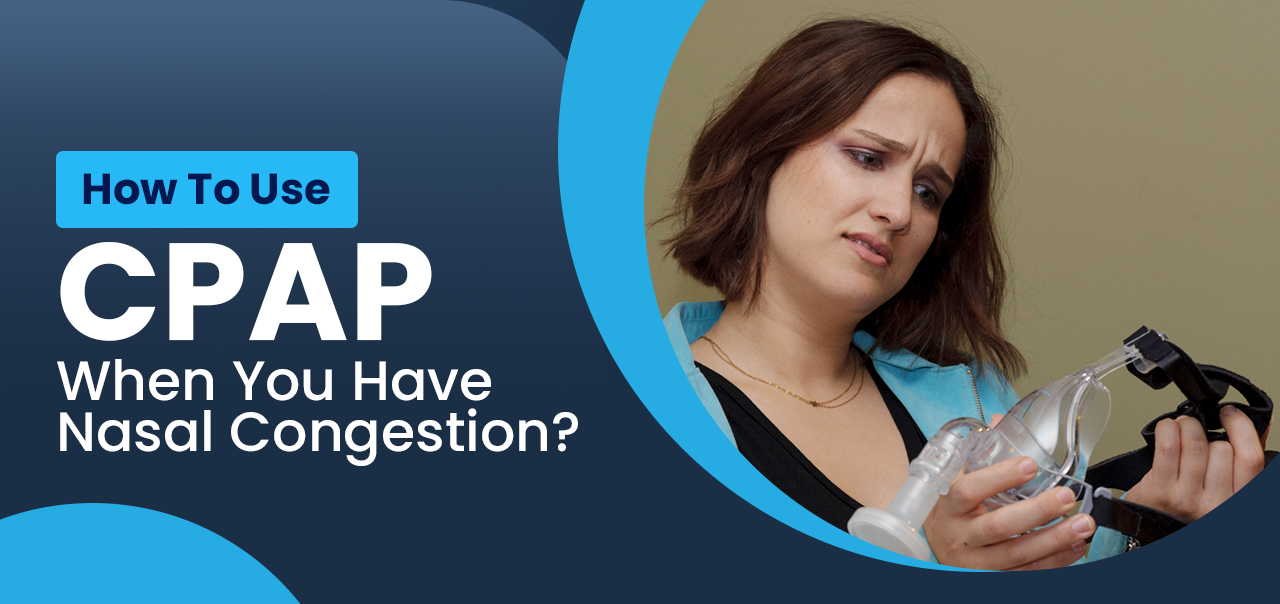How To Use CPAP When You Have Nasal Congestion?
Posted by Admin on 21st Mar 2022
Changes in temperature or cold symptoms, in addition to allergy symptoms, might cause difficulties inhaling at night using CPAP. Since many sleep disruption sufferers are mouth breathers when they begin utilizing CPAP treatment, they change to their noses. This "overnight" alteration might irritate your nose and reveal nasal sensitivities you were previously unaware of. Regardless of your reason for respiratory problems or discomfort, consider the following ideas to enable you to achieve treatment goals:
● Many modern CPAP devices have a warmed humidifier that provides water to the atmosphere you inhale via your ResMed nasal mask. Often these patients benefit from warmed humidification for relaxation, particularly those who live in dry areas, are over the age of 65, or are taking medicine that promotes dry air passages.
● Warmed CPAP equipment maintains the temperature and keeps it warm as it passes from your warmed humidifier towards the masks and inside your airway via the tubes. Alternatively, the air cools down and might rapidly chill before reaching your airway. Furthermore, the chilling of the airflow might produce moisture in your tubes, resulting in a rainout.
● Help ensure your filtration is cleaned and is updated regularly. It is advised that you rinse your filtration with clear fluid for a period of seven days and leave it to dry fully before reinstalling it in your machine. You may also use a hypersensitive filter with a finer weave to allow even lesser airborne pollutants to enter your device.
● While suffering from nasal congestion due to an illness or allergens, many CPAP patients will convert from the nasal pillow mask to ResMed nasal mask. A facepiece mask completely conceals your nose and lips. There is already a mask with a nasal pillow mask and oral element.
● There'll always be air leaks with any facemask. The idea is to limit the air pocket while also ensuring that the airflow does not irritate your eyeballs. If you have a cough or allergens, air flowing inside your eyeballs at night might aggravate dryness and discomfort throughout the daytime. To avoid having your CPAP treatment interrupted, eye doctors, recommend applying drops right before bed. It is critical to appropriately treat both your sleep disorders and any resultant eye discomfort, so see your specialist.
● Saline is used in nasal sprays and Neti pans to assist relieve obstruction and discomfort in the respiratory system.
● Antihistaminescan help with nasal congestion caused by allergies. It's vital to remember that certain antihistamines might make you drowsy. Intranasal steroids also are accessible and may be beneficial. Discuss this with your physician.
In case no suggestions or CPAP nasal masksmentioned here assist to ease your problems, you must visit your physician or an Ophthalmologist to have your problems evaluated. Sleep is very crucial for your personal fitness. Sleeping, for instance, aids in the mending and regeneration of your cardiovascular system. Sleep deprivation has been associated with a greater risk of cardiovascular disease, renal disease, high cholesterol, hypertension, and stroke. So get the perfect sleep cycle with your CPAP nasal masks, visit MyCPAP today!


